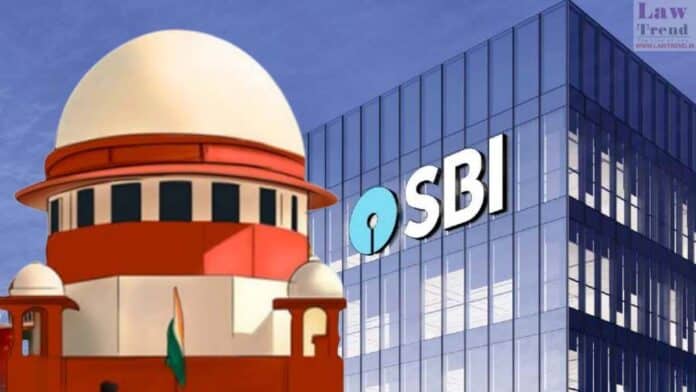In a significant development, the Association for Democratic Reforms (ADR) has filed a contempt petition in the Supreme Court against the State Bank of India (SBI) for not complying with the court’s order to disclose electoral bonds data by March 6. The ADR, which was the primary petitioner in the electoral bonds case, has accused the SBI of disregarding the apex court’s directives despite having the necessary data.
The controversy stems from the Supreme Court’s directive, issued by a five-judge constitution bench led by Chief Justice DY Chandrachud in February, which invalidated the electoral bonds scheme and mandated the SBI to reveal details of every electoral bond redeemed by political entities. The court ordered that this information, including the date of encashment and the bond denominations, should be furnished to the Election Commission by the specified deadline.
However, the SBI, seeking more time, approached the Supreme Court on March 4, requesting an extension until June 30 to provide the detailed disclosures. The bank argued that compiling data from various sources and matching them was a complex and time-consuming task.
Also Read
The ADR’s recent plea emphasizes the urgency of the matter and seeks the Supreme Court’s immediate intervention to ensure the SBI complies with the order to disclose the bond data forthwith. The organization has highlighted the importance of transparency in electoral financing and the critical role of such disclosures in ensuring fair electoral practices.
The Supreme Court had also instructed that the Election Commission should make the information provided by the SBI publicly available on its official website by March 13, a move aimed at enhancing electoral transparency.




